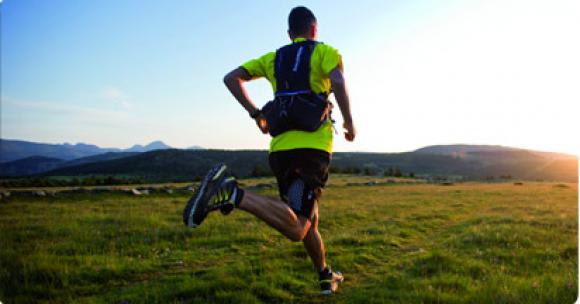

How Your Body Works
Just like a car, your body is a machine that needs fluids to operate efficiently. In fact, your body is more than 60% water, and even light exercise can deplete that percentage. No fluid means no function, and suddenly it's you stranded on the trail with an overtaxed body. This loss of fluid is called dehydration. And hydrating, or adding fluids, is the key to keeping it from happening to you.
The Benefits Of Staying Well Hydrated
- Increased energy, power, and endurance
- Improved temperature regulation
- Enhanced performance and speed
- Optimized calorie burning
- Faster recovery time
How Do You Know When You're Dehydrated?
Once you've reached the point of feeling thirsty, dehydration has already begun. If left this way, the body will continue to provide signs that it is running low. Early signs include a dry mouth and a decrease in energy. These can quickly lead to cramps, headaches and nausea.
Expert Tips to Prevent Dehydration
The cure to all this unpleasantness is as close as a glass of water. Experts recommend the following to make sure you are well hydrated while exercising:
- Hydrate early: Drink fluids about 2 hours before exercising.
- Sip consistently: Opt for frequent, small sips over large, infrequent gulps.
- Consider sports drinks: Replenish electrolytes and carbohydrates lost through sweat.
- Refuel after exercise: Restore fluid levels and promote recovery.
- Monitor urine: Aim for copious and clear urine as a sign of adequate hydration.
- Keep fluids accessible: Invest in durable drinkware like a Stanley vacuum bottle or hydration pack to ensure hydration is always within reach.
These tips will help you stay hydrated, and help you incorporating good habits and precautions to you daily lifestyle.
When it comes to staying hydrated during exercise, choosing the right drinkware is essential.
Brands like Stanley offer durable, leak-proof options that keep your drinks cold for hours, ensuring you stay refreshed and energized throughout your workout.

Is It Possible To Over-Hydrate?
Too much of a good thing, even water, can have negative side effects. The flip-side to dehydration is over-hydration, or hyponatremia. This is a fairly rare condition which mainly affects endurance athletes such as marathon runners and triathletes. In hyponatremia, sodium levels in the blood become so diluted that cell function becomes impaired. In extreme cases, hyponatremia may cause coma and even death.
The Solution To This Dilution?
- Try not to drink more than you sweat.
- Keep your salt levels balanced by drinking a sports drink with electrolytes instead of plain water and/or eating a salty snack such as pretzels.
- Drink while you're exercising and you'll be less likely to drink too much.
- You can test your water intake by weighing yourself before and after intense physical activity. You should weigh about the same. If you have gained weight, you are probably drinking too much water.

